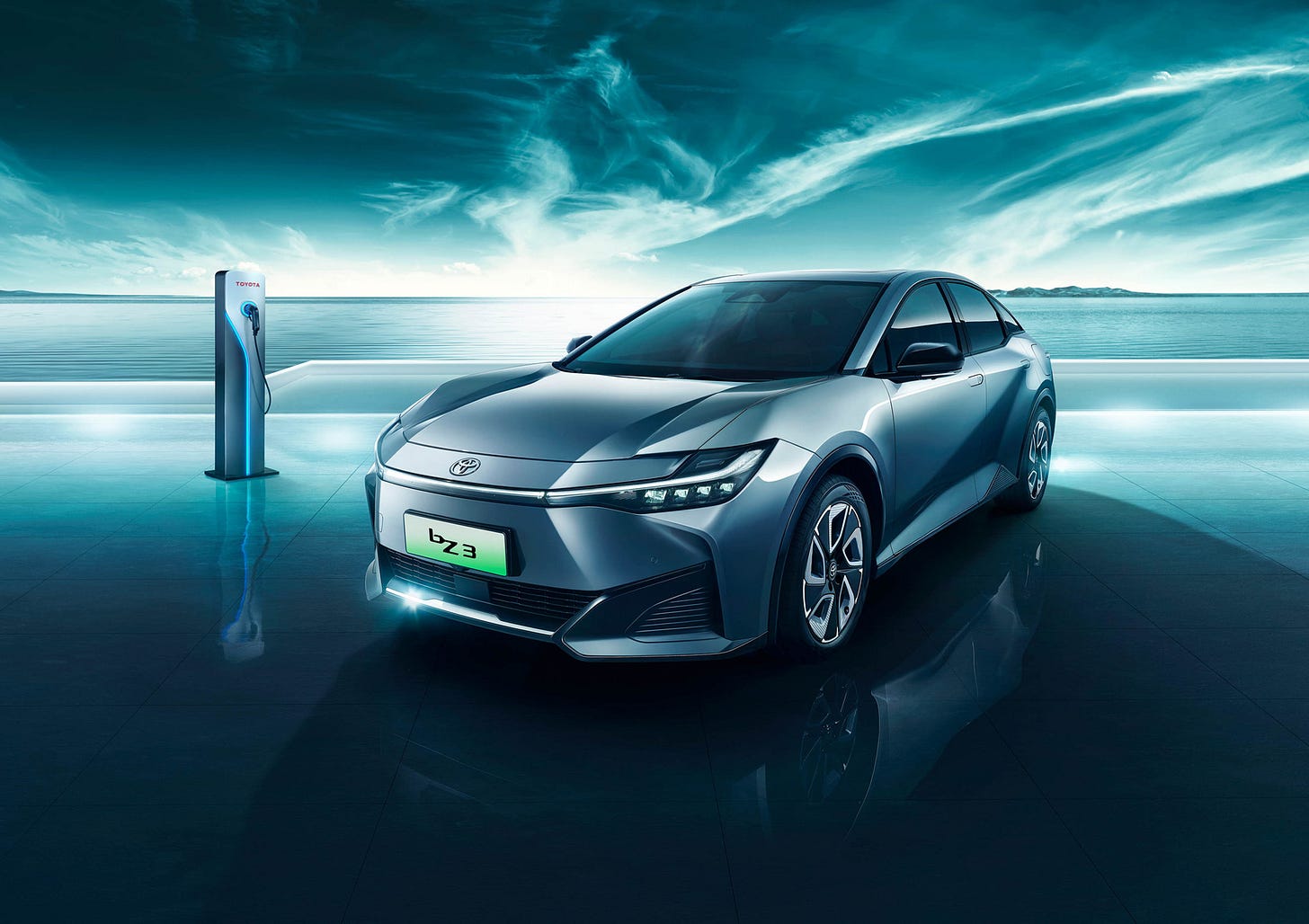Toyota’s $15,000 EV Jolts China’s Electric Car Market
The launch of the bZ3X is a clear signal from a foreign brand to local players that they are not backing out of the EV race but are gearing up for a fierce battle.
The launch of bZ3X highlights a pivotal moment for legacy automakers in the EV race. It is also a signal from a foreign brand to local players that they are not leading the battlefield and are capable of bringing equally compelling and value-for-money EVs. The challenge is to convince local buyers who trust and prefer Chinese brands as opposed to foreign ones.
Toyota’s launch of the bZ3X—its most affordable EV yet, costing $15,000—has sent shockwaves through China’s hyper-competitive electric vehicle market. Within an hour of its March 2025 debut, the SUV received 10,000 orders, crashing Toyota’s servers and signaling the appetite for affordable, tech-packed EVs in the world’s largest auto market.
China: The EV Leader
China’s EV market is absolutely a colossus, expected to overtake predominantly IC engine cars for the first time in 2025. Government subsidies, a robust battery supply chain, and consumer preference for innovation have bolstered this growth. BYD, China’s EV giant, sold 4.27 million EVs in 2024 alone, while startups like Nio and Li Auto push boundaries in luxury and tech. Yet, foreign brands have found it hard to take on local automakers—until now.
Toyota Makes a Bold Move
The bZ3X marks Toyota’s bold entry into China’s budget EV battleground.
Key highlights:
Price Shock: At ¥109,800 ($15,000), it is slightly lower than BYD’s Yuan Plus (¥115,800) and rivals like the Wuling Bingo.
Packed with Tech: Even at an affordable price, the car gets a 14.6-inch touchscreen, NVIDIA-powered autonomous driving, 25 ADAS features, and an impressive 610 km (379-mile) range for the top variants.
Adaptable Interior: The foldable seats provide nearly 10-foot cabin space, combining utility with comfort.
This isn’t just a car—it’s Toyota announcing that legacy automakers can compete in China’s cutthroat EV arena.
The Significance of the Launch
Market Shift: The bZ3X targets budget-conscious urbanites and young families, a demographic driving China’s EV adoption.
Lead in Battery Tech: Using LFP batteries (cheaper, longer-lasting), Toyota slashes costs without sacrificing range.
Driverless Advantage: The Momenta 5.0 system—a first for Toyota—promises “human-like” driving smarts, appealing to tech-savvy buyers.
Despite this, challenges loom, such as charging infrastructure gaps, BYD’s leadership, and consumer skepticism about non-Chinese EV brands (even for marquee brands like Toyota).
Taking on Aggressive Competitors
BYD’s Yuan Plus and Tesla’s much-anticipated $25,000 Model 2 now face stiff competition from the bZ3X, and its success depends on: Focus on Brand: Toyota’s proven record for reliability vs. BYD’s home-market advantage. Tech Lead: Can Toyota’s AI-driven features surpass China’s software-first startups?
Strategic Play
Toyota’s move isn’t just aimed at the Chinese market—it’s a strategic play for the global EV market. If the bZ3X succeeds in its goal, it could:
Put pressure on rivals to slash prices globally.
Prove that legacy automakers can respond to the rapidly changing EV era.
Alter China’s auto leadership ranking, currently dominated by local players.
A New Era for Toyota—and Its EV Ambition
The bZ3X’s remarkable entry isn’t just a sales win—it’s a symbolic shift for Toyota. For years, market critics treated Toyota as an EV laggard. Now, with a $15k SUV that promises a combination of value-for-money features, cutting-edge technology, and Toyota’s renowned engineering, the Japanese OEM has taken a big shot at the competition. As China’s EV race heats up, one thing is clear: the battle for electric supremacy will be fought on price, tech, and speed. And Toyota just proved it’s ready to run.




